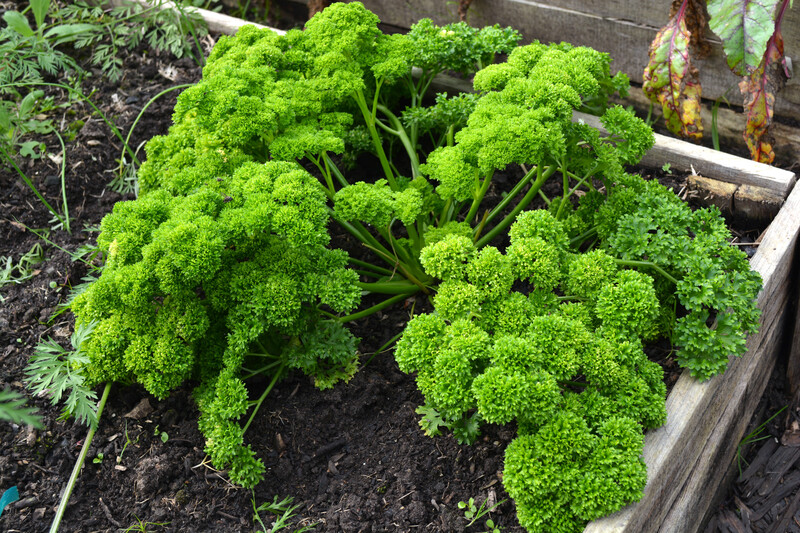Waste Not, Want Not: Soil's Organic Infusion
Posted on 02/09/2025
Waste Not, Want Not: Soil's Organic Infusion
Welcome to a comprehensive exploration of soil's revitalization through organic infusion. In a world increasingly focused on sustainability and resourcefulness, understanding how to transform waste into a rich resource for soil health offers solutions for gardeners, farmers, and environmental enthusiasts alike. If you've ever wondered how your kitchen scraps or yard waste could become the lifeblood of your garden, this article is your guide.
The Significance of Soil's Organic Infusion
The concept of organic infusion in soil revolves around integrating organic material--originating from once-living organisms--into the earth to boost fertility, structure, and microbial activity. Rooted in the age-old adage 'Waste Not, Want Not', the practice of leveraging organic matter halts unnecessary waste while enriching your soil. This win-win situation is central to sustainable agriculture, urban gardening, and eco-friendly landscaping initiatives worldwide.
What is Organic Matter and Why Is It Important?
Organic matter includes plant clippings, compost, animal manure, decaying leaves, and food scraps. When these materials are returned to the soil instead of being sent to landfills, they infuse the ground with essential nutrients while improving its structure. Here's what makes organic matter so critical:
- Nutrient Cycling: It supplies vital macronutrients and micronutrients for plant growth.
- Moisture Retention: Improves soil's capacity to hold water, reducing irrigation needs.
- Soil Aeration: Promotes better root development and oxygen exchange.
- Microbial Habitat: Provides a food source for beneficial microbes and earthworms.
- Carbon Sequestration: Helps lock carbon in the soil, mitigating climate change.

How Organic Infusion Transforms Soil Health
The Science Behind Soil Enrichment
At its core, soil's organic infusion is a natural recycling system. Microorganisms break down organic waste, a process known as decomposition. During this phase, nutrients are released back into the soil for plant uptake. The resulting humus--a stable, dark substance--acts as a nutrient reservoir and improves the physical qualities of soil.
Here are key transformations that occur with the regular addition of organic matter:
- Improved Texture: Heavy clay soils become lighter and more friable, while sandy soils gain more structure and water-holding capacity.
- Enhanced Fertility: Essential elements like nitrogen (N), phosphorus (P), and potassium (K) are made available to plants.
- Increased Biodiversity: A rich web of microorganisms helps in disease suppression and overall ecosystem resilience.
- pH Buffering: Organic matter stabilizes soil pH, making it less prone to toxic swings.
From Kitchen to Compost: Making the Most of Organic Waste
What Can Be Composted?
A wide range of materials can be turned into soil builders. Here's a list of household and garden waste suitable for composting:
- Fruit and vegetable peelings
- Coffee grounds and tea bags
- Eggshells
- Grass clippings, leaves, and yard trimmings
- Shredded newspaper and cardboard
- Dead flowers and plant cuttings
- Uncooked food scraps
Tip: Avoid adding dairy, meat, oily foods, and diseased plant materials to traditional compost piles as they attract pests and slow decomposition.
Steps for Effective Composting
- Choose a Spot: Select a well-drained area with partial shade for your pile or bin.
- Layer Materials: Alternate 'browns' (carbon-rich, like leaves) with 'greens' (nitrogen-rich, like vegetable scraps) for balanced compost.
- Maintain Moisture: Keep your pile damp, akin to a wrung-out sponge.
- Turn Regularly: Aerate the pile to speed up decomposition and prevent odors.
- Harvest: Finished compost is dark, crumbly, and earthy-smelling--ready to enrich your garden beds.
Ecosystem Benefits of Soil's Organic Infusion
When you infuse soil with organic material, the benefits ripple out beyond your garden:
- Reduces landfill burden, returning biomass into productive use.
- Decreases greenhouse gas emissions by diverting organic waste from landfills, where it would otherwise generate methane.
- Restores degraded land, improving productivity and decreasing erosion.
- Increases biodiversity, supporting insects, birds, and beneficial microfauna.
These benefits align with circular economy principles, transforming waste streams into life-supporting resources through soil's organic enrichment.
Soil Organic Infusion Methods: Choices for Every Gardener
Traditional Composting
Arguably the most popular method, conventional composting involves the collection and managed breakdown of organic waste in a pile, bin, or tumbler. It suits most yard and garden sizes, fitting community initiatives and backyard gardeners alike.
Vermicomposting: Harnessing the Power of Worms
Vermicomposting is the process of using earthworms--most often red wigglers--to decompose organic material. The resulting worm castings are a nutrient-dense soil conditioner.
- Advantages: Odor-free, compact, and can be done indoors or outdoors.
- Ideal for: Apartment dwellers and classrooms, or anytime space is limited.
Bokashi: The Fermentation Revolution
Developed in Japan, the Bokashi system employs beneficial microbes to anaerobically ferment kitchen scraps (including those not suited to standard compost like meat and dairy). The pre-composted material is then buried in the soil, where it finishes decomposing and feeds your plants.
Sheet Mulching (Lasagna Gardening)
This method layers organic material directly over garden beds. Over time, the layers break down--enriching the soil and suppressing weeds for effortless, low-till gardening.
Green Manure / Cover Crops
Green manure involves growing specific plants (like clover, vetch, or rye) specifically to till back into the soil. These crops fix nitrogen, prevent erosion, and build organic content rapidly.
Organic Infusion for Urban Soils
Urban environments present unique soil challenges--compaction, contamination, and low organic matter content. Organic infusion is especially crucial in cities:
- Improves rooftop and container garden health via compost amendments.
- Remediates polluted ground by binding toxins and encouraging healthy microbial populations.
- Reduces stormwater runoff with enhanced soil permeability.
Many city governments and communities now offer food waste collection and central composting, making it easier than ever to divert kitchen waste from the landfill to urban gardens. Get involved with local initiatives or start a balcony worm bin!
Misconceptions About Soil Amendment with Organic Matter
Myth 1: Compost is just 'fertilizer'
While finished compost contains nutrients, its primary value lies in improving soil structure, moisture retention, and microbial vitality--not as a replacement for all nutritional needs.
Myth 2: All organic material is equal
Different organic wastes break down at different rates and offer unique benefits. For example, woody prunings add carbon slowly, while grass clippings release nitrogen quickly.
Step-By-Step Guide: How to Enrich Your Soil Organically
1. Assess Your Soil's Current State
Before adding anything, understand your soil's texture (clay, sand, loam) and fertility. Soil tests guide you on what amendments your garden needs most.
2. Choose the Right Organic Infusion Method
Think about your available materials, space, and garden scale. Home composting suits backyards, while Bokashi may fit an apartment lifestyle.
3. Collect and Process Materials
Gather compostable waste daily. Chop or shred larger pieces to speed up decomposition. Mix carbon-rich and nitrogen-rich ingredients to balance your pile.
4. Apply Finished Compost or Other Amendments
Once your compost is dark and crumbly, spread a 2-3 inch layer over garden beds or blend into the first 6-12 inches of soil. New plantings will thrive, and existing gardens respond with robust growth.
5. Monitor and Adjust
Observe soil tilth, plant health, and water retention. With regular organic additions, your soil becomes more resilient season by season.

Environmental and Economic Advantages of Soil Organic Infusion
The promise of waste reuse lies in its double-edged advantage: saving money and saving the planet. Consider these ongoing benefits:
- Reduces fertilizer dependence, saving on repeated chemical purchases.
- Minimizes waste disposal costs, as less garbage is sent to landfills.
- Improves harvest yields, supporting food security without additional land use.
- Builds community wellbeing when composting is undertaken at schools, neighborhoods, and urban farms.
Summary: Cultivating Tomorrow's Soils with Today's Waste
The journey from waste to soil wealth is a transformative one. By adopting the mantra Waste Not, Want Not, gardeners and growers unlock the secret energy stored in every apple core, autumn leaf, and lawn clipping. The process of organic soil infusion not only sustains a vibrant growing space but also supports global goals of resource conservation and climate resilience.
Whether you're an urban dweller composting coffee grounds or a smallholder farmer using crop residues as green manure, every action to infuse soil with organic matter matters. Collectively, these efforts restore soil vitality, promote biodiversity, and close the loop on waste, pointing the way toward a greener, more sustainable future for all.
Further Resources
- US EPA: Composting at Home
- Rodale Institute: Organic Soil Health
- Garden Organic (UK): Composting Guide
Ready to start your soil's organic infusion journey? Remember: Waste not, and you'll want not -- for fertile, resilient, and thriving soil!
Latest Posts
Garden Transformations on a Budget for the Time-Strapped
Steps to a Playful and Secure Garden for Children
Unlock the Secrets to Designing Breath-Taking Garden Seating

